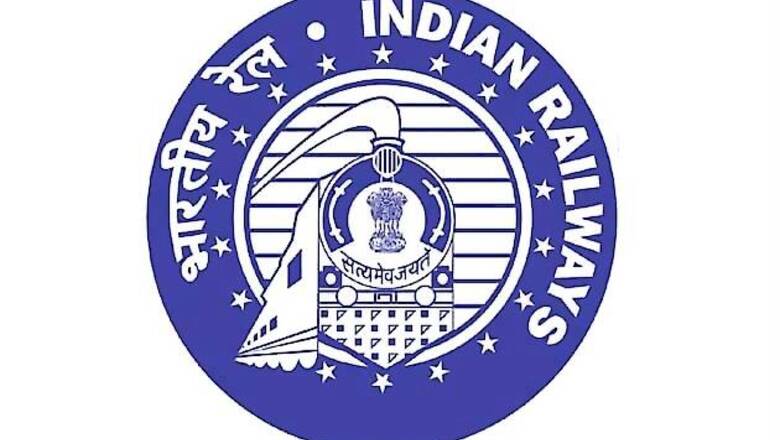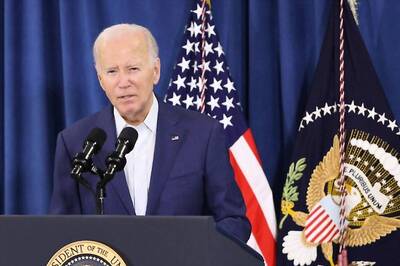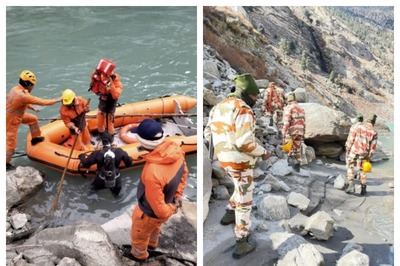
views
The Railway Budget 2014-15 presented By the Hon'ble Railway Minister S Gowda is revolutionary in more ways than one. A rare presentation that focuses on giving a growth direction to the Indian Railways and its dilapidated infrastructure while simultaneously making efforts to re-in force the faith of the nation in the viability of the railway to deliver and play its due role in the building of the Nation. There is welcome absence of populism of any kind, a bane of the railway for decades. The foremost stress on cleanliness, technology intensive approach and efficiency augurs well for the future. However, there is an effort to lay down the mile markers but a lot needs to be said and done about the urgent need to look at the administrative culture and the 'mindset' that exists on the railways.
This 'mindset' has never been recognized as a core problem area that must need primary attention. This is fundamental if the railways have to perform at high levels on a sustainable basis. The railways will always underachieve unless the political management takes care of the issues involved. Notwithstanding the fact that the Indian railways are still one of the better run government run departments, the railways always deliver way below the potentials that are available for exploitation.
There is a need to remember a particular period in the history of Indian Railways when almost overnight, without any capital or other financial inputs, the performance improved by a thousand times. In fact, the expenditure for same services reduced by a whopping thirty odd percent within a short time. We failed at that time to draw the right lessons from this experience and have paid a heavy price for it in the years that followed. Importantly, what it means that there is a tremendous unrealized potential performance waiting to be harnessed if only the 'mindsets' and administrative attitudes are taken care of. These ever pervasive negative factors are discussed in the following paragraphs.
The biggest obstacles in the race for achievement are the perennial non-performers who enjoy proximity to all the powers that be and spend a lifetime organizing permanent stay at one or two places. These persons are all pervasive and are kings of all metro and other important towns. These are very well known and envied personalities. They never perform but are the blue eyed boys of the system. They are in most cases local touts and facilitators. They are generally spoken of very highly by the vested interests and major suppliers of equipment to the railways. Special posts and vacancies tend to be created to accommodate them. A number of top political and bureaucrat bosses are generally beholden to them. This clan needs to be ruthlessly weeded out. This would provide instant results by way of administrative and work efficiencies and significant reduction in costs. The past efforts have invariably failed for lack of political will duly aided and abetted by the top officials.
Any child will be able to tell after a cursory look at the system files, that the decision making process in the railways is archaic with too many tiers and moribund. The overall administrative attitudes are sorely negative. Yes, the things will move fast If only the minister or top boss is personally interested. The process is totally devoid of professional integrity or a sense of responsibility towards the well-being of the organization. Any kind of decision can be arrived on depending on who is the end beneficiary or how much resources have been committed to oil the machinery.
The rates of return for projects are manipulated every day in every case to suit the instructions of the top. No wonder only five percent or so of the railway projects turn out to be economically viable. The routine things, that may be vital for the system go through a long winded cruel process to see a not necessarily a happy end. These elements need to be identified and rooted out from their abysmal depths and time bound decision making ordered and demanded. The accountability should be instant and painful. A maximum of twenty four hours should be allowed for recording the required decision. A micro managed file movement system should be affected in each organization.
The present budget lays tremendous stress on use of technology. Only the insiders know that introduction of new technologies is not controlled by railway administration but by the industry players who line up key officials involved in implementation and promptly put them in their deep 'heavenly' pockets. Those that may dare to show initiative could lose their careers or made to suffer in many other ways. Many an officers have been instantly transferred for being 'unconventional'. There are examples galore of efficient proven technologies lying unimplemented for years because of vested interests at huge financial losses to the public. This will certainly happen in the future also. Suffice it to say that this is an area of which the Minister should be vary and watch very closely.
Sound management practices require that the manpower in the organization need to have proper skills and be looked after well. The second key need is timely availability of quality material resources. In the past decades the railways has failed to provide that enlightened management that is required to meet these ends. The railway staff is under skilled in many key areas. The training facilities and programs are just not adequate for the gigantic requirements. This is also one of the most neglected areas exceptions apart. The provisioning of resources and key material is another story. If only this is tackled, the railways functional efficiencies will increase by leaps and bounds. The procurement system needs a thorough overhaul and enforcement of accountability at all the levels right to the top. This single action can change the fortunes of the organization and provide unimaginable economies
There are numerous systemic deficiencies that are crying for attention on the railways. They need urgent remedial action if the goals set in the current budget are to be met. The most inefficient of all is the way finances, both on the revenue and expenditure side, are dealt with. The lack of professionalism in this area is the cause of delayed projects and a hindrance to the economic wellbeing of the railways. The philosophy in vogue is that do not allow expenditure till the patient is gasping for last breath... Proposals have to go through so called financial scrutiny 'n' number of times. Those financial officers that are professional make a visible difference to the performance. Unfortunately that cannot be said for the bulk of the officers in the department on the railways.
The foregoing is an effort to outline the internal system deficiencies that need to be addressed and remedied if the objectives and the goals as specified in the Railway Budget for 2014-15. The issues are many but the remedies are surprisingly simple. The action required can be implemented in a week or two and results achieved in a few weeks with amazing organizational outcomes.
Ashok Kumar Jain, Former General Manager, South Eastern Railway, Indian Railways




















Comments
0 comment